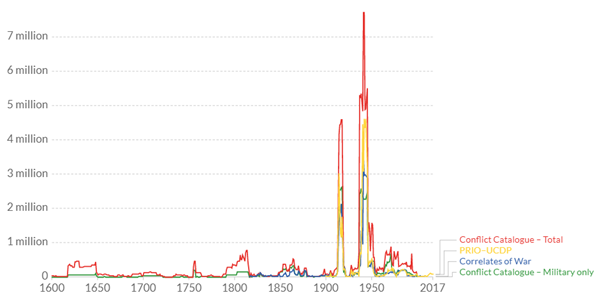5 reasons for optimism in 2021
Forty years ago, the great Ian Dury took his song Reasons To Be Cheerful to the top three in the UK charts. Back then, Dury cited an eclectic mix of things we should be thankful for, from cheddar cheese and pickle to the Bolshoi Ballet.
In a world where political unrest, Covid-19, Brexit and more dominate the news, you might think you need better reasons than yellow socks or John Coltrane’s soprano to be hopeful about the future. But it’s worth remembering that even in tough times there are lots of, as Dury sang, reasons to be cheerful.
2020 has been a difficult year
There’s no doubt that 2020 is a year none of us will forget. The coronavirus pandemic has impacted almost every aspect of our lives, from our mental health to our jobs.
When we were celebrating the New Year back in January, who would have guessed that by the end of the year, working from home would be normal, John Lewis would be closed, and the government would be paying the wages of millions of UK workers?
But, while the grave effect of the pandemic continues to be felt, it has also shown us how hope and optimism can appear in dark times. It’s also demonstrated how this can become a force for social change.
Indeed, as a recent poll from the strategy consultancy BritainThinks shows, just 12% of people want life to return to ‘exactly as it was before’ once the pandemic is over.
How optimism can drive positive societal change
Back in the 1950s, German thinker Ernst Bloch wrote a three-volume work, The Principle of Hope, that suggested that living optimistically can lead to beneficial changes at a societal level. He called it ‘militant optimism’.
Bloch fought the idea that history is what happens to us. Instead, he argued that history is what everyone actively makes every day – hence it can be addressed, contested, and remade.
Take 2020 as an example. Consider the Covid-19 pandemic, environmental destruction, gender and race inequalities, and ongoing wars.
A pessimist would look at the world around us and dismiss any idea that progress was being made.
However, as the recent wave of Black Lives Matters protests, or the continuing fight against inequality and state violence in countries like Chile show, this isn’t actually the case.
Bloch concluded that militant optimism drives human action and imagines a better future rather than fixating on the defeats of the past – as the mobilisation of thousands of people against racism around the world demonstrates.
Reasons to be cheerful – the 2021 version
Back in 1980, Ian Dury suggested that National Health glasses and porridge oats were good reasons to be cheerful. Looking at a global picture, there are lots of reasons why it is perfectly reasonable to be optimistic as we head into 2021. Here are just a few.
Tackling the Covid-19 virus
At the time of writing, there are 44 active Covid-19 vaccine trials in phases I to III taking place around the world. Many scientists are hopeful that a vaccine will be approved for widespread use in 2021 – indeed there has been positive news from Pfizer already this month.
And, even if it arrives in the middle of 2021 – still a record for a new vaccine – scientists are discovering major advances in the treatment of Covid-19 all the time, and this drastically reduces the mortality of the disease.
And, the UK government has extended financial support until the spring. With a wide range of measures designed to protect jobs, support business, and help the self-employed, Rishi Sunak has realised he must do what he can to ensure the economy can bounce back quickly once the pandemic abates or a vaccine is found.
‘Community’ is back
What the pandemic has shown us is that community in the UK is alive and well. People came together to sing on balconies, millions of us clapped in the streets, and an army of volunteers helped the most vulnerable in our society.
Many local BBC news bulletins still retain a ‘make a difference’ slot to highlight positive work in the community eight months after the initial lockdown began.
We can take great optimism from the way businesses and communities are rallying to protect the most vulnerable. You only have to look at Marcus Rashford’s recent campaign to see the huge focus there has been on our instincts of entrepreneurship and philanthropy, not fear.
There has been a surge in people donating to local food banks and looking out for their neighbours and elderly relatives, and this shows no sign of ending even when life returns to something approaching normal.
Tackling climate change
While there is still much work to be done to reverse the effects of climate change, it’s worth remembering that renewable energy is the fastest-growing energy source globally.
26% of energy consumed globally for heating, power and transportation was from renewable energy sources in 2018, up from 18% in 2017. This is expected to rise to 45% by 2040, with most of it coming from solar, wind, and hydropower.
Public acceptance of the basic science of climate change, and awareness of its dangers has grown hugely around the world, even in countries such as the US that were previously resistant. Time magazine didn’t name Greta Thunberg its ‘person of the year’ in 2019 for nothing!
Better global health
The Bill and Melinda Gates Foundation reported that, in 1990, 82 children younger than the age of five died for every 1,000 born in the world.
By 2019, that number had fallen to a rate of 37. While that is still too many, it’s a significant improvement.
As well as a potential Covid-19 vaccine, polio is near eradication and malaria deaths continue to drop. Scientists have also announced a new therapy that seems likely to benefit 90% of people who have cystic fibrosis.
The most ‘peaceable time in our own species existence’
While war still rages in countries around the world, the absolute number of war deaths has been declining since 1946.

Source: Our World in Data
In some years in the early post-war era – from Korea to Vietnam – around half a million people died through direct violence in wars. Compare this to 2016, where the number of all battle-related deaths in conflicts involving at least one state was 87,432.
In an interview with Scientific American, Harvard psychologist Steven Pinker sought to dispel the idea that the world is becoming increasingly violent. “Statistics suggest this may be the most peaceable time in our own species’ existence,” Pinker said.
Get in touch
While the news may often seem as if everything is gloomy, there are plenty of reasons that we should look forward with optimism.
Next month, I’ll look at why great investors have faith in the future but, in the meantime, if you’d like to review your financial arrangements, please give me a call on 07769 156 250.
Foster Denovo Limited is authorised and regulated by the Financial Conduct Authority.
The value of your investment can go down as well as up and you may not get back the full amount you invested. Past performance is not a reliable indicator of future performance.




